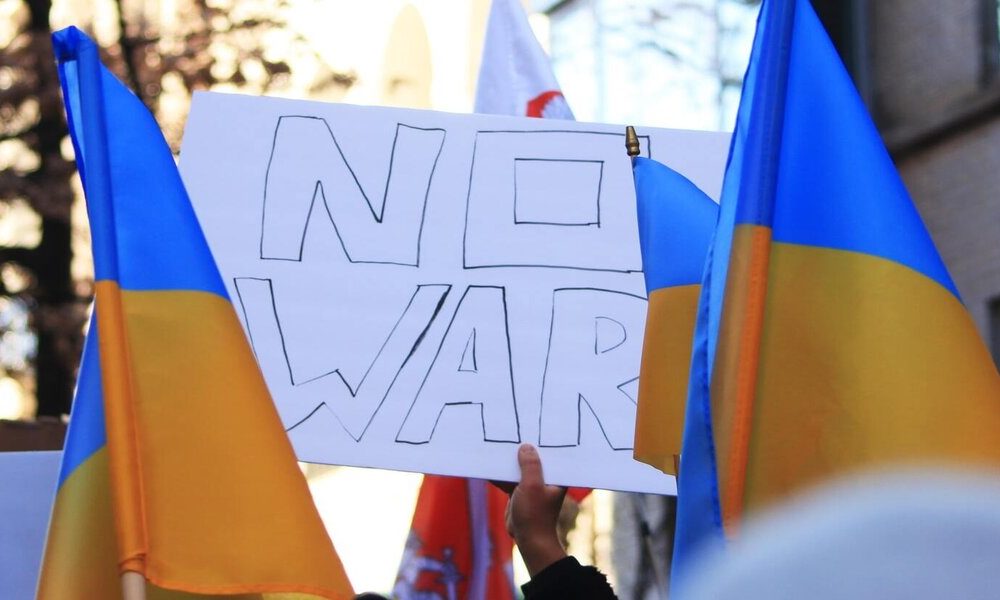
On February 24, Russia invaded Ukraine. After several weeks denying that he was going to do it to several of the main European leaders, the Ukrainians woke up a little over a week ago with the news that the Russians had invaded their territory, despite the threats of sanctions that weighed on the country if they finally did. Vladimir Putin went ahead with his plans, which has led to economic sanctions, much stronger than many might think. He has also made many companies decide to close or stop their operations in the country. Either because of those sanctions, by their own decision or in response to the request of the Ukrainian government.
Intel and AMD were among the first to confirm that they were going to stop exports of technology products to Russia. Specifically, semiconductors. Not only to Russia, but also they will not sell them to Belarus, considered by the international community as a country that is collaborating with Russia in the invasion of Ukraine. Both assured that their decision is due to the sanctions imposed by the United States on Russia, and also Intel has condemned the invasion of Ukraine. In addition, the impact of stopping its sales in the country will be minimal.
At first it was not clear if the interruption of the sale of microprocessors of both companies was total, because the restrictions affect in principle the chips that are used for military purposes, as well as those that have dual use. That is, those that can be used for both civil and military uses. This would imply that the sale of the main chips for consumption, such as Intel Core and AMD Ryzen, would not necessarily be affected. But both companies have decided that they will not sell any chips to Russia.
TSMC joins Intel and AMD
The sanctions regarding the export of products are similar to those that the United States imposed on Huawei, but instead of affecting a single company, they affect an entire country, something that is being done for the first time. It is likely that Russia has been planning this operation and its consequences for quite some time, so it is quite logical that it has been preparing for these types of consequences for months. However, if the situation continues over time, you may have problems in the not too distant future. Especially since the sanctions do not only affect these two companies. Also to other major chip manufacturers, such as Samsung, Micron or SK Hynixwhich will probably have to stop exporting components to Russia.
What’s more, TSMCa supplier of more than important importance to the Russian hardware sector, has also decided to stop supplying components to the country. A good blow for the Russian hardware sector, since its processors Baikal and Elbrusand other chips designed by Russian companies, such as MCST, yadro or STC Module, are manufactured by TSMC. But not only that. Members of the open source community are engaged in various debates over whether or not they will continue to support Russian-made chips, according to Tom’s Hardware.
Outside of Mobile World Congress
At the same time, in Barcelona, with the Mobile World Congress about to open its doors, the entity in charge of its organization, the GSMAmade the decision to not allow the participation of several Russian companies. In addition, the organization announced that was not going to allow a pavilion to be opened representing Russia, in which both the country and some of its companies were going to show their products and services in the technology sector. However, it did not confirm which Russian companies would be affected by the decision, because they could buy space in the exhibition area without having to rely on the Russian pavilion. For this reason, the most affected have been those who depended on this pavilion to attend the event.
The GSMA made the decisions with just a few hours to go before the fair, which ended yesterday, March 3, would open its doors. This was confirmed in a statement posted on the event page. In it he also condemned the invasion of Ukraine, and those responsible confirmed that «In view of this situation, and considering the tragic loss of life, the MWC seems irrelevant. the MWC is a unifying event, with a vision to bring the mobile ecosystem together to advance in such a way that connectivity can ensure that it advances people, industry and society«. In view of these statements, Russia, with the steps taken in recent days, would not have fit very well into the event.
Trickle of technology and media leaving Russia
Meanwhile, as the days went by, the number of technology companies announcing their departure from the country, or the total or partial closure of their services in Russia, increased. The same is happening with many media outlets, forced in this case by the new Russian laws that have made independent journalism illegal. The last to do so was BBCas confirmed by BBC News Director Jonathan Munrothrough his Twitter account.
We are not pulling out @BBCNews journalists from Moscow, as some articles are suggesting. We cannot use their reporting for the time being but they remain valued members of our teams and we hope to get them back on our output as soon as possible.
— Jonathan Munro (@jonathancmunro) March 4, 2022
Apart from AMD or Intel, one of the first technology companies that decided to leave the Russian market and stop selling its products in the country was Manzana, which also confirmed on March 1 that it was no longer going to sell devices in the country due to its invasion of Ukraine. In addition, it confirmed that its Apple Pay payment service and other services were going to be limited.
just as you have done Google with Google Play, it has removed the RT and Sputnik apps from the App Store. They have also disabled real-time traffic and accidents on Apple Maps in Ukraine as a safety and precautionary measure. Facebook and Twitterwho had already decided to limit their activity in the country, are currently blocked in Russiaas well as app stores for smartphones, and various media, such as Deutsche Welle or the BBC itself.
As to Google, confirmed a few hours ago that it has stopped selling online advertising in Russia, a decision that affects the search engine, YouTube and various external advertising partners. Others such as Twitter or Snap had already done so, according to Reuters. Throughout this week, Google had already banned media affiliated with the Russian government from buying or selling advertising through its technology, with the exception of banners protesting the invasion or showing anti-war positions. However, they do not rule out taking further action, because as they themselves acknowledge, “the situation is evolving rapidly, and we will continue to share updates when the time is right.”
In addition, CNBC highlights that both Visa What master card Russian banks have been kicked out of their system by sanctions. This is added to the decision taken to leave the majority of banks in the country, seven, out of the SWIFT information exchange network between banks. It has only left within the network, as confirmed by Reuters, the two banks that are associated with payments for energy sources.
Spotify It has also decided to close its office in Russia and has eliminated the content of RT and Sputnik, although it has confirmed that it will continue to maintain the streaming service. On the other hand, airbnb has confirmed that it has stopped providing its services in both Russia and Belarus. This in the midst of a cascade of companies from all sectors that close their offices or stores in Russia: Nike, H&M, Ikea, Adidas, Ford, Volvo or Daimler. The big film production companies, such as Disney, have canceled their premieres in the country. And even the largest airline ticket online booking wholesale company, saberhas canceled its agreement with Aeroflot and will no longer sell Aeroflot tickets.
Ukraine asks tech companies to leave Russia: Oracle and SAP say yes
While companies of all kinds left Russia or cut off the sale of products to the country, in Ukraine they did not sit idly by, and their government began to directly ask some fifty institutions and companies to stop doing business in Russia. They even asked ICANN to invalidate all country-related top-level domains. ICANN has refused, assuring that they neither have the power to do so nor would they if they could, since they argue that they must remain neutral.
Of the majority of companies and organizations contacted, there is still no news of the decision they have made, but there are two that have already said yes: Oracle and SAP. The first confirmed that it was ceasing all its operations in Russia through a tweet issued through its official Twitter account in response to another from First Deputy Minister of Ukraine Mykhailo Fedorovshowing the letters he had sent to both Oracle and SAP.
On behalf of Oracle’s 150,000 employees around the world and in support of both the elected government of Ukraine and for the people of Ukraine, Oracle Corporation has already suspended all operations in the Russian Federation.
— Oracle (@Oracle) March 2, 2022
Regarding the answer of SAPhas given its CEO, Christian Klein, through a post on the company’s blog. In it, he points out that they condemn the invasion of Ukraine and that, in line with the established sanctions, he is going to suspend sales of all the company’s products and services in Russia. Of course, in both cases it is not clear what it means for the clients that both Oracle and SAP have in Russia today.
The exits announced so far of Russian companies and technology companies are all American and European companies in their vast majority. But Chinese technology companies have not made any kind of statement about it so far. Nor have they ceased their activity in the country, as CNBC points out. Of course, it is quite likely that the number of companies that cease operations in Russia will increase over the next few days, while the first effects of the economic sanctions and the sale of products and services to the country are already beginning to be noticed, especially in the field of information and social networks.



